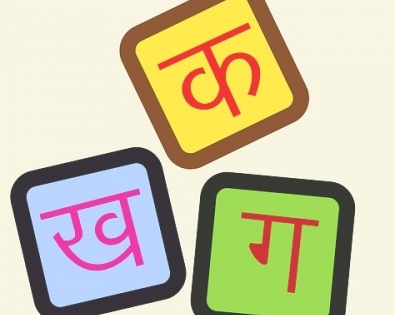Impractical proposal, impossible to implement, insist Bengal civil society opinion makers
By IANS | Published: April 17, 2022 10:30 AM2022-04-17T10:30:04+5:302022-04-17T10:40:16+5:30
Kolkata, April 17 Union Home Minister Amit Shah's recent statement that Hindi should be accepted as an alternative ...

Impractical proposal, impossible to implement, insist Bengal civil society opinion makers
Kolkata, April 17 Union Home Minister Amit Shah's recent statement that Hindi should be accepted as an alternative to English, and not to local languages, across the country is "premature", "impractical" and an "impossible proposition to implement" in a country like India, especially in a non-Hindi speaking state such as West Bengal.
This is the opinion of academic and civil-society representatives with whom spoke on this issue.
The Bengali intelligentsia feels that promoting Hindi as a replacement to English requires the setting up of a huge infrastructure where Hindi should be a compulsory subject in the school curriculum.
They also feel that most of the schools, especially government-run or government-aided ones, in non-Hindi speaking states do not have the infrastructure to make Hindi a compulsory subject for all students taught in the school.
And hence they feel that Shah's proposition is "premature", "impractical" and "impossible" to meet.
They also apprehend that forceful imposition of Hindi might result in an internal civil-war between the Hindi-speaking and non-Hindi speaking population in the non-Hindi speaking states like West Bengal.
Historian and professor at Kolkata's Rabindra Bharati University, Ashis Kumar Das, told that Hindi imposition is like what happened in undivided Pakistan, where the Urdu-speaking leaders in then West Pakistan tried to impose Urdu on the Bengali-speaking population in the erstwhile East Pakistan.
"The rest is history. I want to ask the Home Minister whether he wants an internal civil-war by forceful imposition in Hindi? The people of every state have their sentiments about their mother language. So do the Bengalis.
"But the Bengalis and the non-Hindi speaking population do not have any hatred about Hindi as a language. But forceful imposition will give birth to that internal hatred, which might result in bloodbath in certain cases," Das said.
Siddhartha Bhattacharya, the principal of a leading state-run higher secondary school in South 24 Parganas district, while speaking to , pointed out the infrastructure bottlenecks behind the implementation of the Home Minister's proposal.
"The government-run or the government-aided schools form the backbone and foundation of the education system in West Bengal, since the majority population do not have the financial backup to afford high-profile schools that can provide separate infrastructure for three languages, namely English, Bengali and Hindi, for all the students.
"So, including Hindi as a subject for all students in any non-Hindi speaking state like West Bengal will require development of huge infrastructure such as syllabus formulation, separate classrooms and appointment of dedicated Hindi teachers.
"That will involve time and huge cost. How many state governments have that reserve to spend money behind such an avoidable expenditure? Will the Union government provide the funds to the state governments to bear the cost? So, in my opinion, this proposal is simply insane," Bhattacharya told .
Kolkata-based academic administrator, Subhosmit Bauchi Sen, told that there is a system which is followed by the Union government for a long time to make the Central government employees aware of the working knowledge of Hindi.
"But that is restricted to an extremely small fraction of the population. Making the entire population, or even the state government employees in all non-Hindi speaking states, adapt to both verbal and written Hindi cannot be accomplished in a short period of time.
"And also, my question is who will provide the funds for setting up the requisite infrastructure for this purpose? Replacing English with Hindi is not an easy task. I have been to Kerala a number of times. There the owners of local grocery shops are more comfortable in communicating in English rather than in Hindi," she said.
Pro-Bengali civil society group ‘Bangla Pokkho' has already launched a state-wide campaign on this issue, describing the proposal as a latent attempt to convert West Bengal into an "extended cow-belt" or "greater Uttar Pradesh".
The executive member of Bangla Pokkho, Arindam Biswas, who is also a prominent city-based physician, told that his organisation will resist the attempt of Hindi imposition in West Bengal at any cost.
"We are not against Hindi or Hindi-speaking people. For years people speaking various languages have been residing in our state peacefully, with none trying to enforce a particular language on the other. We will not allow BJP to forcefully impose Hindi and hurt our pride with Bengali as our mother tongue," Biswas said.
Disclaimer: This post has been auto-published from an agency feed without any modifications to the text and has not been reviewed by an editor
Open in app